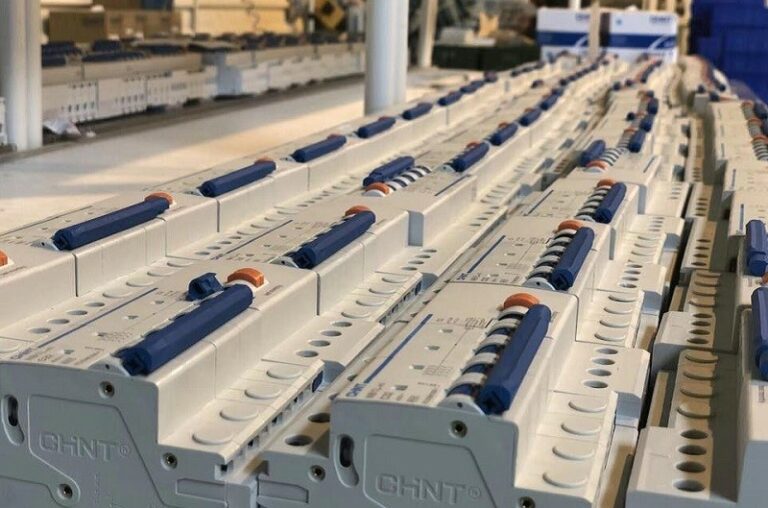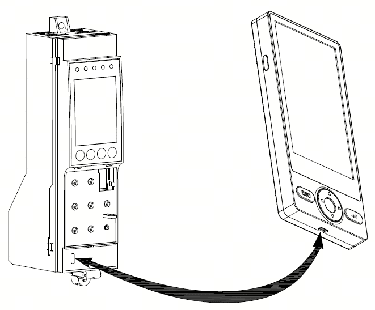Table of Contents
Protection of electrical devices and users is a must for anyone installing electric circuitry. They are therefore met with the decision on whether to use a fuse vs circuit breaker. Ideally, every home will have both of these. The difference probably is where and when to use either. Homeowners also buy fuses once in a while to replace spoilt ones for specific devices.
There are many differences between both of these electrical devices.
The differences range from cost, application, operation principle, and reusability. However, the main difference between these devices is in the application and working principle as explained in this article.
What Is a Circuit Breaker and How Does It Work?
Circuit breakers are electrical switches that prevent devices – usually multiple devices and homes in case of power overloads and circuit short-circuiting. When connected and put in the “on” position, it will allow electricity to pass through it normally. Circuit breakers are required or a must when doing the wiring for homes and businesses depending on the jurisdiction and they usually contain many types.
Usually, a circuit breaker is installed to serve a given room say the kitchen, or need like all the lighting needs of a room. One will usually serve many devices at once. When the power load exceeds the requirement or there is short-circuiting in a connected device or circuitry, the device will disconnect the power by tripping.
Ideally, a biometric strip could mechanically be connected to the wiring connection such that it will heat excessively and warp hence disconnecting the power. Two strips are used and the thinner one will warp and throw the switch to off position to disconnect power when there is short-circuiting or power loading. These two strips are normally connected under a normal power supply. Others use electromagnetic connections such that when power is in excess or there is short-circuiting, the circuit trips and disconnects the switch. Tripping means it will switch automatically to an off position.
Circuit breakers also have a rating. Smaller and lower-rated ones protect individual devices while larger and higher-rated ones protect households.
What Is the Fuse and How Does It Work?
Fuses are electrical devices inserted between the two power terminals on the positive terminal supplying power to an electrical device. It simply comprises a piece of wire that will melt away easily when something goes wrong. Ideally, the fuse wire melts to disconnect power to the device and avoid spoiling the device. This happens when the power supply exceeds the required by the device. The fuse will obviously allow the power or current to flow through the wire normally until an overload or excessive power supply – known as current or power surge – happens.
Therefore, fuses are made with specific power considerations and specific to the device. Nevertheless, they are made in standard current ratings of 3 A, 5 A, and 13 A. The fuse to be used on a device should be higher than what current the device requires. For instance, a device should use a 5 A fuse if it works at 3A. This offers better protection because the fuse will blow out at an excess of 5A current than 3A.
The thin wire is enclosed in a glass material or ceramic or metal casing. The setup is then put in housing. A central fuse can be used to protect the entire home. In that case, it is put in a central fuse box where all house electric wiring emanates to supply the house with power.
The fuse cannot be reused again once it blows because the wire facilitating the flow of current through it is melted and broken. It will need to be replaced. It is required to replace a fuse of a proper rating based on the device and electricity requirements, otherwise replacing it with a high rated fuse than intended or designed by the manufacturer will cause overheating. This may cause fires.

What’s the Difference Between Circuit Breaker and Fuse?
The main difference between fuse and circuit breaker is that circuit breaker functions to mechanically disconnect the connection any time the power load exceeds supply. This helps prevent fires and other problems on connected devices. On the other hand, a fuse prevents a specific device from spoiling in case the current incoming exceeds the required.
Reusability
While a fuse blows out when current incoming exceeds required by a device, it cannot be reused after this. However, a circuit breaker functions by tripping and disconnecting the connection mechanically. It can simply be flipped back on hence is reused severally.
Operation Principle
While a circuit breaker electromagnetically switches off the connection, the fuse utilizes conducting materials whose electrical and thermal property damage when the current exceeds required.
Operation Mode
A circuit breaker operates mechanically and manually while the fuse is automatic though also mechanically since you have to re-fix it.
Response Time
The response time for the fuse is 0.002 seconds while that of the circuit breaker is 0.02 – 0.05 seconds.
Switching Action
While a circuit breaker can be used on ON/OFF switches, a fuse cannot.
Protection
While a fuse prevents devices and homes against power overloads only, circuit breakers protect homes and devices against power overloads and short-circuiting. This is also an important consideration for those choosing between fuse vs circuit breaker.
Breaking Capacity
Fuses carry a lower breaking capacity than circuit breakers.
Application
Circuit breakers are used to protect the entire home than individual electronic devices. Fuses protect individual devices rather than the entire home or apartment. This is also important when deciding between fuse box vs circuit breaker.
Cost Part
Circuit breakers are more costly than fuses. Indeed, the cost of a fuse is incomparably low to that of a circuit breaker. Cost is one consideration when deciding between circuit breaker vs fuse.
Conclusion
The main difference between fuse and circuit breakers is that fuses cannot be reused while circuit breakers can be reused over and over again. Circuit breakers are used to protect homes and devices against overloading and short-circuiting while fuses protect devices and homes against overloading only.
Recommend Reading

Circuit Breaker – Working Principle, Types and Safety Tips
Either at home or in business, many times there are sudden electrical failures that if they are not addressed quickly, they can cause significant damage

Complete Guide About Low Voltage Electric
Homeowners need automation controls, internet, and lighting. That is why builders have to install low voltage electric nowadays. Electrical devices of all kinds have become








